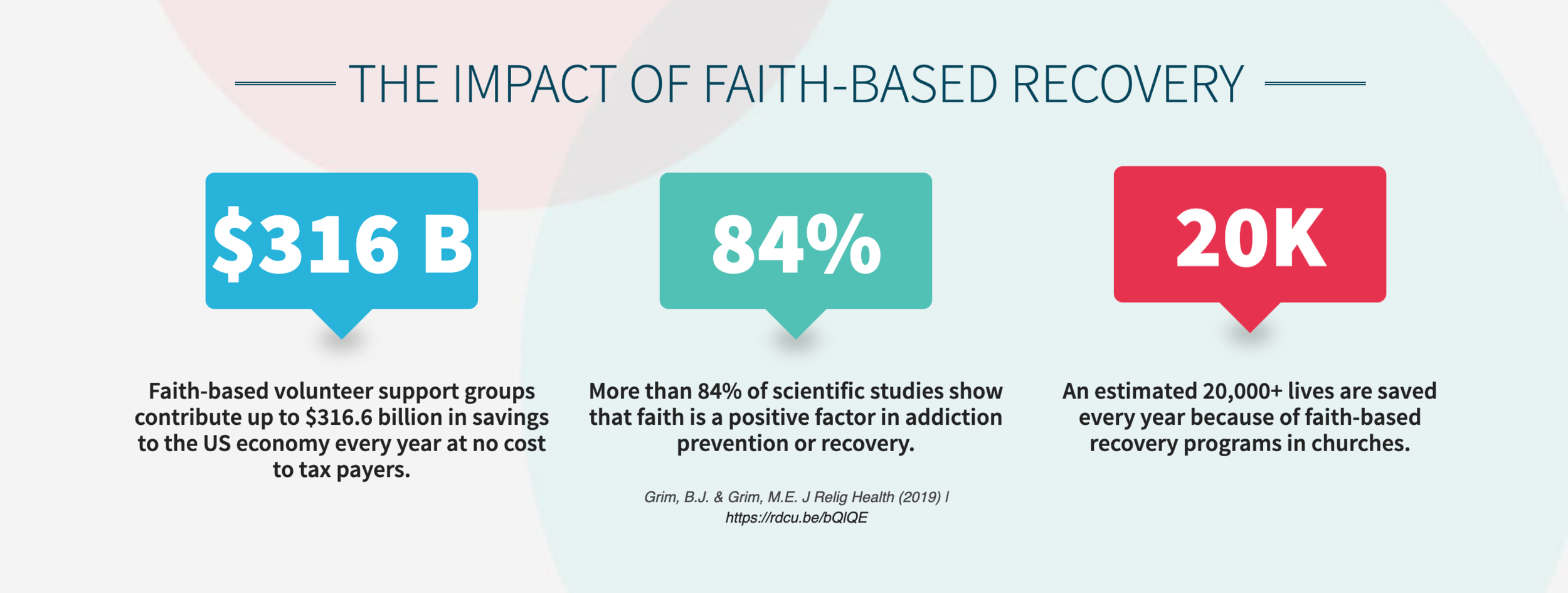August 31 is International Overdose Awareness Day, and the month of September is National Alcohol and Drug Addiction Recovery Month. With any recovery, changing behaviors is very hard to do. For adults who struggle with depression or youth who struggle with ADHD, substance misuse adds an additional problem in that your body and mind have physical cravings to reinforce negative behaviors.
The Church has a spotty past with working alongside people who have substance misuse issues. We blame people for relapsing when alcoholism is part of the disorder that has altered the way the brain functions. We are starting to understand that depression is a medical illness, but continue to treat misusing drugs as a moral failing, though little thought is put into the similarities. Further, Christians say "you should just stop and trust God." What happens if a pastor struggles with alcoholism, when he or she never set out to drink excessively, but started use alcohol to cope—and it got out of hand? Or what about the organist who went through chemo treatments and became dependent on the opioids she had taken as prescribed? Too many times, I have heard of a youth pastor kicking a teen out of youth group for vaping at a high school football game, instead of coming alongside the teen.
The goal of recovery shouldn’t be just to stop the negative behavior. While that’s certainly important, our goal should be a transformation from the inside out. But that means this advice to ‘just trust God’ may not be helpful.
Photo credit: RURecovery.com.
Substance Use Statistics
To help with substance abuse awareness, we want to share some statistics. Consider sharing these with your church elders if you are interested in finding some support groups or helping congregation members connect to treatment. Use these statistics if you want to bring awareness to your church through sermons, to help people open up more about their struggles. if you are interested, we have church mental health awareness cards that can be put in church lobbies, including one on substance misuse:
Currently, 9.2 million people have both a mental health and substance misuse diagnosis.
That compares to 47.6 million adults that have a mental health diagnosis (1 in 5 individuals in the United States) and 19.3 million adults with a substance use disorder (1 in 12 individuals in the United States).
89.8% of people with a substance misuse disorder are not seeking treatment, 90.4% of people with both a mental health and substance use disorder are not seeking treatment. These rates are significantly higher than those seeking only mental health treatment, at 56.7% because of the shame and stigma that come with substance abuse.
Resources
Two national ministries are currently doing amazing work with regard to substance use that are faith-based. Check these out and see if they can be a resource for you:
RU Recovery Ministries
RU Recovery Ministries is a faith-based recovery program bringing transformation to people and communities everywhere. They offer local meetings, residential discipleship facilities, online resources, as well as ongoing research into the efficacy of their programs.Celebrate Recovery
Celebrate Recovery came out of Saddleback Church’s 12-step recovery program for anyone struggling with hurt, pain or addiction. The roots of Celebrate Recovery are in substance misuse.
The Church has a long way to go, but with God's counsel and our faithfulness to meet people where they are, we can better serve the world.
Jeremy Smith is a clinical mental health counselor in Ohio and founder of www.churchandmentalhealth.com.




